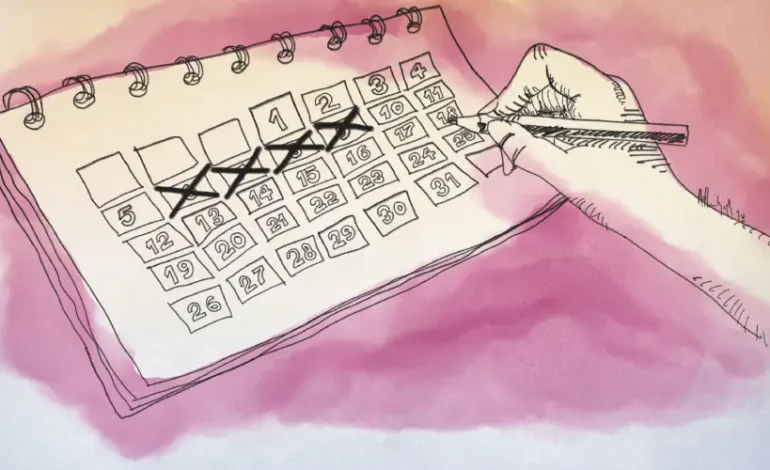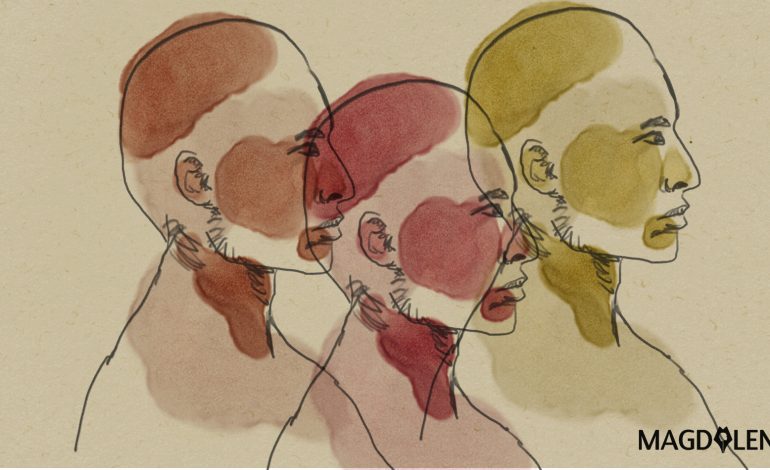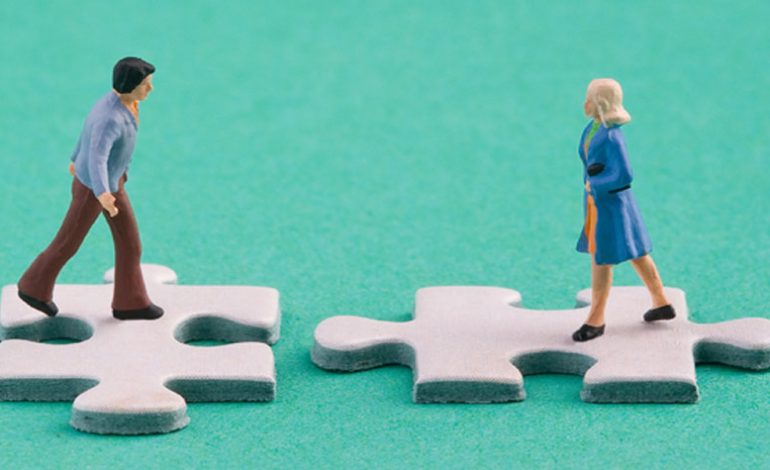Why Do We Have to be Ashamed of Menstruation?

I was on my period. I was in school. While we were having a meeting, I felt the all too familiar signal – the wetness. I ran to the toilet. I saw the stains on my underwear and the warning was clear: I had a few more minutes before my underwear would be soaked in blood. And because I had a very short dress on, I knew a disaster was waiting to happen.
Since I wear a menstrual cup, I know how challenging it can be to empty the cup in a public toilet – especially one devoid of a bidet and/or toilet paper. (Some people have given up on the cup because of this.)
And because I am a bleeder, the first two days are always the worst, and I am required to empty my cup as often as every 4-5 hours.
The drill was too familiar. When you are on your period, you don’t talk about it. Any problem you encounter, you have to deal with alone, or with close friends. If in your desperation you would need the help of other people, the plea for help should be made with utmost apology and humiliation.
I was then reminded of how a few days ago, a woman took the Internet by storm when she decided to run in a marathon without a tampon. Her reason? To fight against period shaming. And so I felt that at that moment, I was given an opportunity to show my solidarity to her.
Because of the “shame in our bleeding,” I was not bold enough to free flow but I thought of a different way to approach the situation. As I excused myself from the meeting, I informed a few of my classmates of the reason why I had to leave. As casual as I could be, I said, “I have to leave. I’m on my period.”
My female seatmate gave a reassuring smile, one that said, “I understand.” But the reactions of some of my male classmates were just how I thought it would be: every single reaction was mixed with a sense of surprise.
One laughed – which is what most of us do when we are faced with an embarrassing situation. Another said, “Ayos sa dahilan ah!” He probably didn’t think I had a legitimate excuse. There was another person who had the cutest puzzled look on his face as if saying, “What?! I didn’t need to hear that!” Others did not seem to be pleased with my ‘over-sharing’ by responding, “Ewww! Bakit mo pa sinabi?” (Why did you have to divulge it?)
This experience made my resolve even stronger: we do need to take a stand against period shaming. I remember how I would feel so ashamed of myself that I would like the ground to swallow me whole whenever I get an accident (tagos). I remember how some men would be so uninvolved from menstruation that the mere act of having to hand over a fresh, unused pad or tampon is met with strong resistance. And if they were forced to do so, they would hold it like it were some kind of Ebola-contaminated material.

It is about time that we started talking more freely about this natural process that women have to deal with every single month. It is time to end period shaming because of its advantages. Some medical conditions can affect our menstrual cycle, but if we are not allowed to talk about it, how would we know when we need help?
When we talk freely about our menses, especially with young girls, they become more aware of their bodies. When we end the social stigma surrounding menstruation and encourage men to be a part of the discussion, we are able to inform them and they will begin to understand the challenges we have to go through every month.
A lot of things happen when a woman bleeds, like abdominal cramps that can render us near-dead. Removing the stigma and the fear of rejection when discussing and being open about periods can help empower women and allow the participation of men.
KathrynLeuch is involved in educating people from diverse backgrounds, beyond the four walls of the classroom. She also loves dogs.
This story was first published in Rappler.com, a Manila-based social news network where stories inspire community engagement and digitally fuelled actions for social change.






















